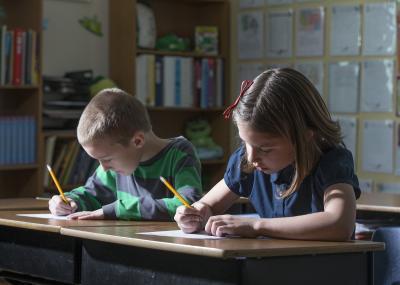When it comes to women, there is a special sort of rationalization that goes on in science, math and engineering; namely, that if they don't have equal numbers in classes, or the classes are not more polite, young women will be turned away. Yet if you replace 'females' with another minority, 'Republicans', in that same argument, cultural apologists insist participation is self selection instead of an oppressive environment. Put in 'black people' and it is back to bias. Put in 'handicapped people' and it is self selection again. The two least represented are dismissed as choice while the two most represented are being unfairly blocked out. It can be maddening until you realize these studies are in journals created to promote world views, not science.
How do sociologists rationalize these contradictory findings? It's a miracle of the humanities. Oh, and social science. Studies have shown it isn't really true anyway - instead, boys in math, for whatever reason, tend to dominate the edges of the bell curve. Boys have more representation at the high end of math scores and then at the really low end, while girls tend to have fewer people on the distant parts of the graph but are 'better' overall. Boys simply have a slightly higher average score. But there are disparities and when there are any disparities someone is going to claim racism or sexism or some other -ism. That's the cultural baggage of having sociology departments. Sociology is 70 percent women, though, so when it comes to articles about women can we trust that their studies are not biased against men? That is an article for another time but no sociologist is going to tackle it.

A new piece is at least unique in that it claims that white girls are the most negatively stereotyped when it comes to math. They took the Education Longitudinal Study (ELS) of 2002 and then followed 15,000 students from that first year of high school into college age and beyond. The ELS had teachers rate whether the math class in which the students were enrolled actually fit their abilities or if the class was too easy or too difficult for them. In analyzing the results, Dr. Catherine Riegle-Crumb and sociology doctoral student Melissa Humphries found that when it came to male and female minority students, teachers rated them accurately if their scores were low. Obviously no bias there. But white girls were rated lower than white boys even if their performance was comparable.
Is that sexism? If it wasn't, it would not be printed in Gender&Society which, according to its promotional blurb, "was founded in 1987 as an outlet for feminist social science." Imagine the response this study would get if it were "peer reviewed" by a journal claiming to be an outlet for masculine social science, or an outlet for caucasian social science or, most laughably, conservative social science. Yet this study is taken seriously because it provides a certain level of confirmation bias. And it explains away why Asian girls kick butt in math - they're not white.
Discrimination is subtle. With 3% handicapped people and 16% Republicans in the post-graduate levels of academia, there is clearly a reason those minorities don't feel welcome in universities but women get more Ph.D.s than men and are hired more often than men for faculty and tenure jobs. So sociology articles scrambling to find sexism in mathematics at a time when female math scores are higher than ever (and girls are 48% of math classes in colleges) may just be engaged in survival tactics - they need to find sexism if they are going to sell subscriptions to their publication. The article does not lay any blame, other than on teachers - but 70% of K-12 teachers are female so if there is bias against females, it is females doing it.
Citation: Catherine Riegle-Crumb and Melissa Humphries, 'Exploring Bias in Math Teachers’ Perceptions of Students’ Ability by Gender and Race/Ethnicity', Gender&Society April 2012 26: 290-322, doi:10.1177/0891243211434614



Comments